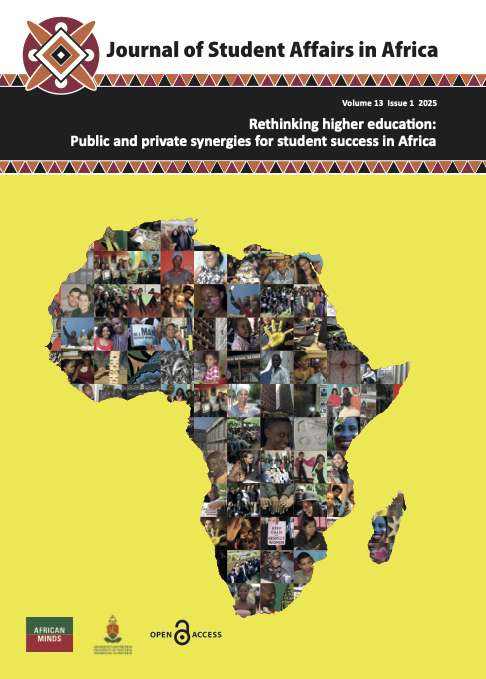Student motivation for volunteering in a peer mentorship programme at a university of technology in South Africa
DOI:
https://doi.org/10.24085/jsaa.v13i1.4889Keywords:
Functional approach in psychology;, Lewin’s model of change;, motivation;, peer mentoring;, Satir’s change management model;, student volunteeringAbstract
The peer mentor programme at the Vaal University of Technology has changed from being incentivised to a volunteer programme. Volunteering is considered a service to others without substantial remuneration. We assumed mentors could benefit from volunteering by developing their skills and social networks, enhancing their employability profile, and experiencing life satisfaction in serving others. However, in practice, structural changes in the programme contributed to low morale among mentors and a higher dropout. Hence, measures were taken to facilitate a more positive volunteer experience. Therefore, the study aimed to deepen understanding of student motives for volunteering and how to encourage sustained volunteering efforts. The study utilised two data sources to uncover volunteer peer mentors’ motivations. The multi-theoretical analytical framework allowed for insights not otherwise accessible. Most participants held volunteering a worthwhile pursuit. They reported enhancement or esteem as their strongest motivator for volunteering, followed by value expression and increased knowledge and skills. Healthy ego functioning or identity manifested as central to a coherent volunteer peer mentor experience. Ultimately, understanding and meeting volunteer mentors' motivational needs leads to enhanced efforts and benefits not just for them as volunteers but also for first-year students and the university itself.
Downloads
Published
Issue
Section
License
Copyright (c) 2025 Corneli Van der Walt

This work is licensed under a Creative Commons Attribution-NonCommercial-ShareAlike 4.0 International License.
Authors who publish with this journal agree to the following terms:
Authors retain copyright and grant the journal right of first publication with the work simultaneously licensed under the Creative Commons Attribution Share-alike 4.0 International License that allows others to share the work with an acknowledgement of the work's authorship and initial publication in this journal.
Authors are able to enter into separate, additional contractual arrangements for the non-exclusive distribution of the journal's published version of the work (e.g., post it to an institutional repository or publish it in a book), with an acknowledgement of its initial publication in this journal.
Authors are permitted and encouraged to post their work online (e.g., in institutional repositories or on their website) prior to and during the submission process, as it can lead to productive exchanges, as well as earlier and greater citation of published work (See: The Effect of Open Access).


